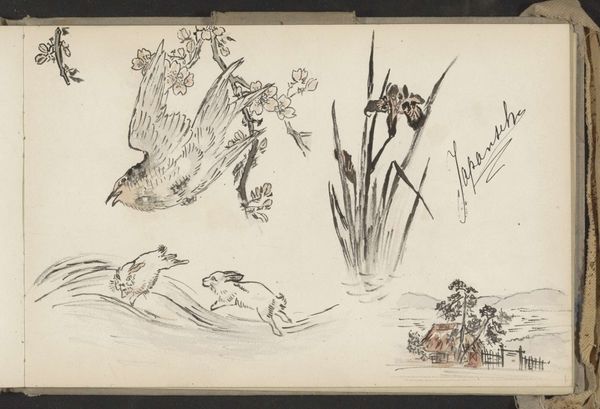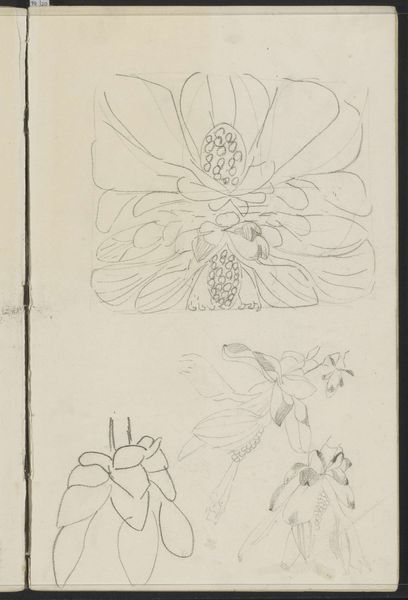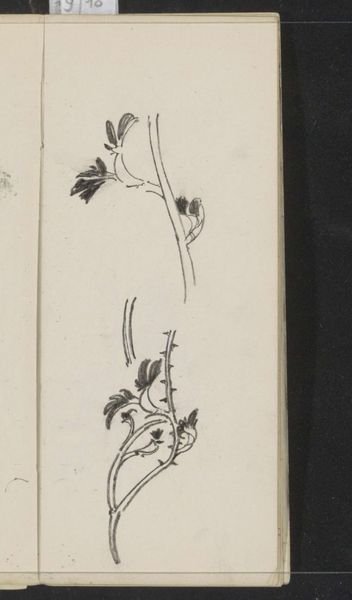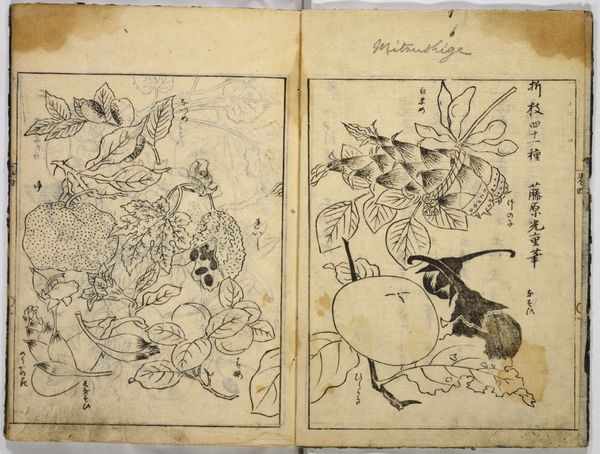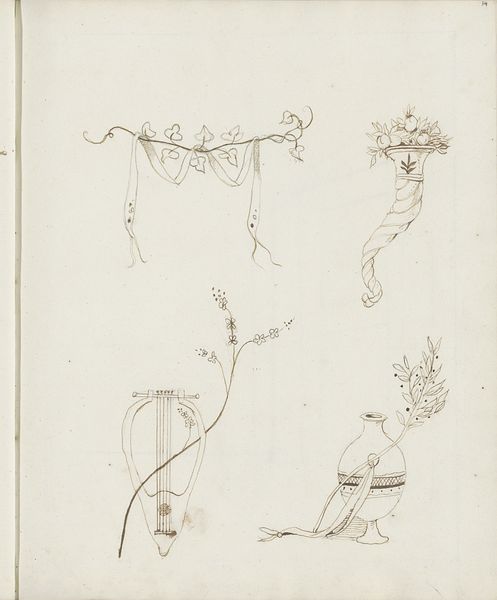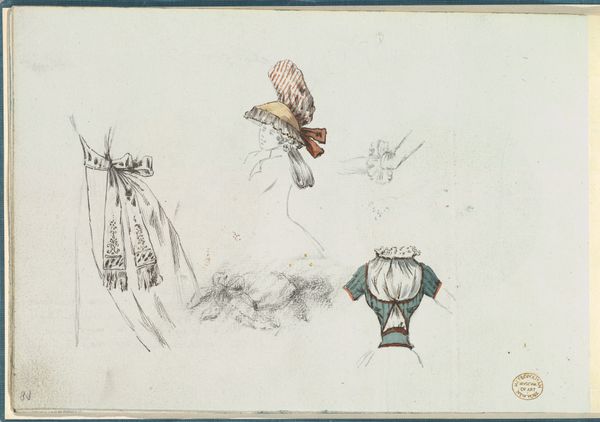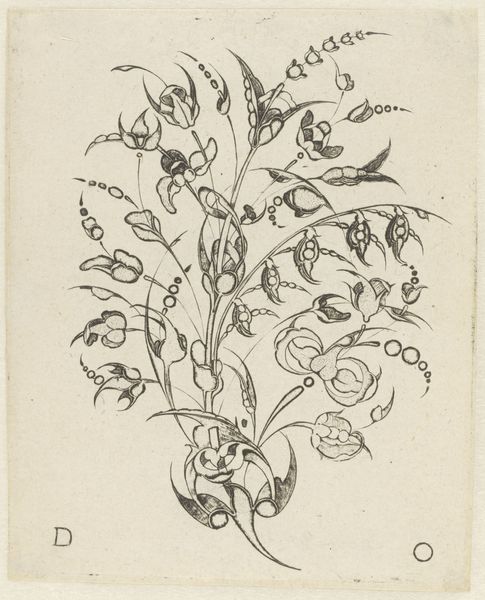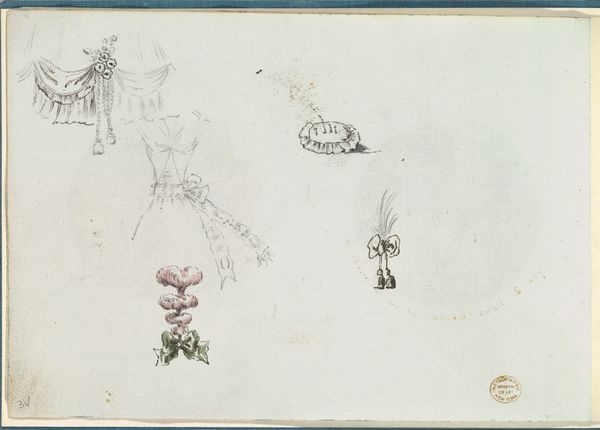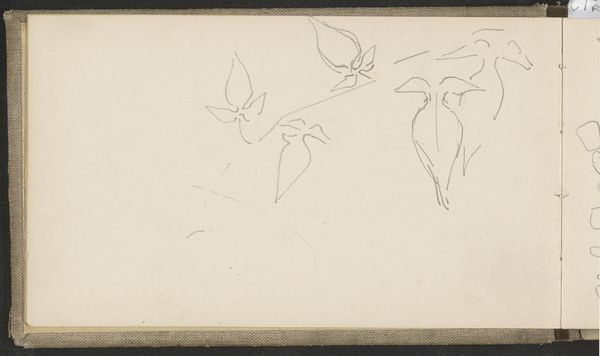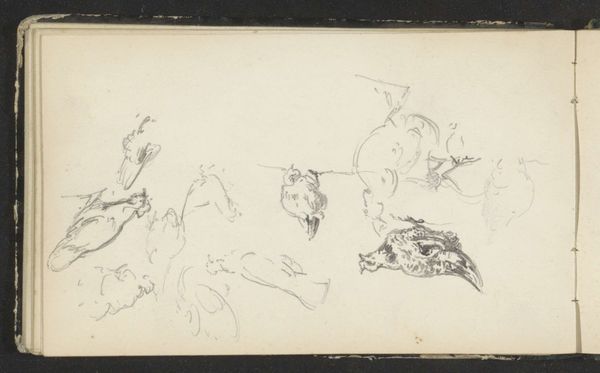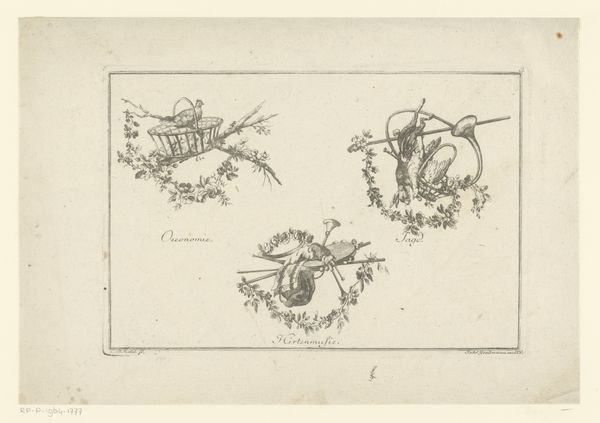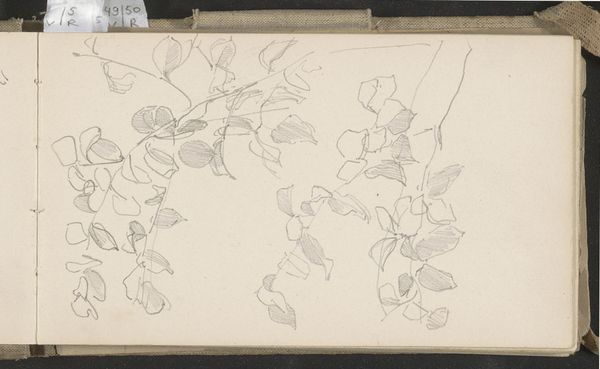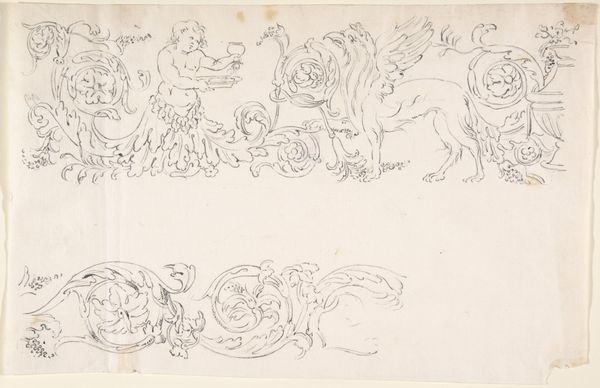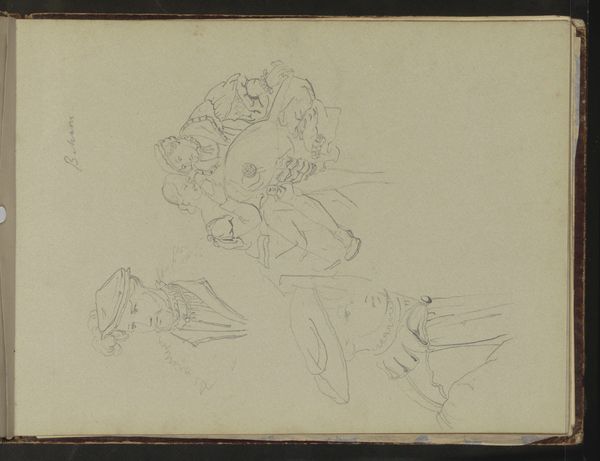
Japanse motieven, onder andere een wesp, kraanvogel en kikvors c. 1890 - 1922
0:00
0:00
drawing, paper, ink, pen
#
drawing
#
quirky sketch
#
pen sketch
#
sketch book
#
figuration
#
paper
#
personal sketchbook
#
ink
#
ink drawing experimentation
#
pen-ink sketch
#
line
#
pen work
#
sketchbook drawing
#
japonisme
#
pen
#
storyboard and sketchbook work
#
sketchbook art
Copyright: Rijks Museum: Open Domain
This page, by Johanna van de Kamer, presents Japanese motifs in ink and watercolor. Note the crane, the wasp, the frog: symbols prevalent in Japanese art, often representing longevity, diligence, and transformation. Consider the frog, or 'kikvors', typically associated with good fortune. Yet, this creature also appears in other contexts, far removed from serene ponds. In ancient Egypt, frogs were linked to resurrection, while in European folklore, they often symbolize metamorphosis. Does the image of the frog trigger some form of collective memory? A trace that reminds us of life cycles and renewal? The convergence of these motifs reveals the mind's quest for meaning, where disparate symbols are interwoven to resonate with our deepest emotions and instincts. We see the cyclical, non-linear progression of symbols; resurfacing, evolving, and acquiring new meanings across time.
Comments
No comments
Be the first to comment and join the conversation on the ultimate creative platform.
